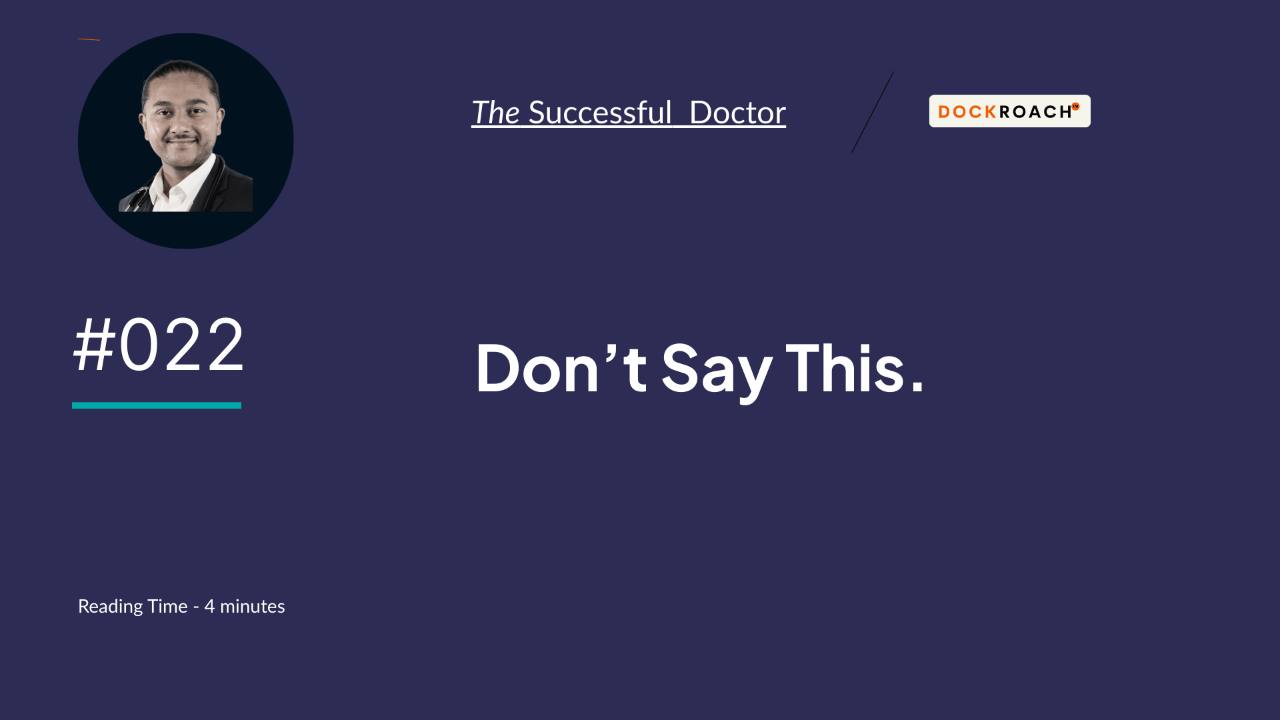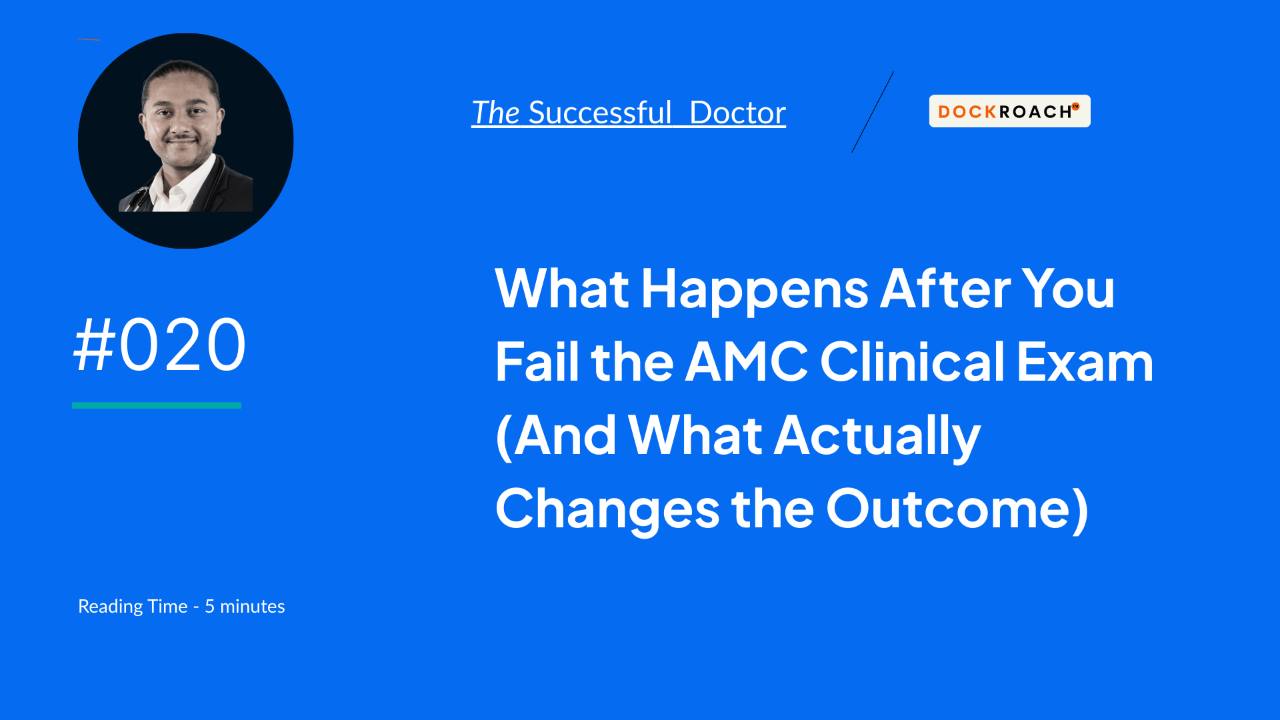How to Nail the First 30 Seconds in the AMC Clinical Exam
Read time: 3 minutes
The first 30 seconds of your AMC Clinical Exam can either set you up for success — or make the rest of the station an uphill battle. . . headed for failure.
Today, I’ll show you how to use those opening moments with precision and confidence.
You’re not just introducing yourself.
You’re setting the tone for the entire performance.
A strong opening builds professionalism, reassures the patient, establishes your authority as 'the doctor', and aligns everyone’s expectations — including the examiner’s.
It also prevents one of the most common causes of time loss: vague introductions that turn into off-track conversations.
If you’ve ever run out of time at the end of a 4-task station or Physical Examination station, this is where the problem began.
Most candidates don’t realise this — but the first 30 seconds set the tone for the entire station. Did you?
- They waste time with unnecessary small talk.
- They look nervous, stumble, or speak too softly.
- They try to wing the opening instead of practicing it like a script.
- They skip writing key points on the A4 paper provided — then repeat questions, lose track of the flow, or even forget the patient’s name.
These aren’t minor issues — they break the rhythm of your consultation before it even begins. The result? A confused patient, a doubtful examiner, and a station that ends in a rush.
You don’t get bonus marks for a strong start — you get momentum.
And momentum helps you score every mark that follows.

As the AMC reminds us directly:
"Note any times given for a particular task and plan your performance accordingly. For example, if 5 minutes is allocated to history, you should use all this time to gather information."
— AMC Tips from Examiners, 2024
3 Common Mistakes in the First 30 Seconds
- Excessive rapport or clarification
→ Small talk wastes time. Don’t ask questions that don’t earn marks — like “That's great to hear. What year are you in medical school?”. Move to Task 1 with purpose. - Visible anxiety and hesitation
→ Stuttering, second-guessing, or hesitating sets the wrong tone. The goal isn’t perfection — it’s calm, professional focus. - Failing to offload cognitive load
→ Always write down the patient’s name, possible differentials, and task keywords. Repeating questions or forgetting names costs marks and breaks trust with patient.
2 Practical Examples
Example 1: Diagnostic Station
Stem: 80-year-old woman with tiredness, weight gain, and low mood for 2 weeks. She appears . . .(long stem continues)
Task 1: Take further relevant history.

❌ Poor start:
“Hello, I’m Dr Aarons, one of the doctors in Emergency Department. What brought you in today?”
→ This opens the door for the patient to give a long, open-ended answer. It delays starting Task 1.
✅ Better start:
“Hello, I’m Dr Aarons — one of the doctors here. I can see from the notes that you’re feeling unwell. That sounds very concerning. May I ask you a few questions to figure this out together?”
→ It shows empathy, uses the provided information from the clinical stem, and gets straight to Task 1.
The patient feels heard, and you stay in control.
Greatest win!
Example 2: Physical Examination Station
Stem: 57-year-old man with right knee pain affecting his ability to run his family business. Current active medical history includes . . . (long stem continues)
Task 1: Perform a focused knee examination.

❌ Poor start:
“Hi, I’m Dr Aarons. How can I help you today?”
→ The patient starts giving history, which isn’t scored. Time is wasted.
✅ Better start:
“Hi, I’m Dr Aarons — one of the doctors here. I understand you’re having knee pain, which must be affecting you quite a bit. Mind if I examine your knee so we can find out what’s going on?”
→ You acknowledge the patient’s concern, then go straight into the examination.
You don’t get extra time for a perfect opening.
But if you nail the first 30 seconds, the rest of the station feels positively longer — because you’re already on track.
Still unsure how to structure your stations?
Get instant access to the AMC Clinical Accelerator — with 100 structured templates and role-play tools to help you master your first 30 seconds, and every one that follows.
“Ordinary people think merely of spending time; great people think of using it.”
— Arthur Schopenhauer
That's all for now.
See you in the next one.






